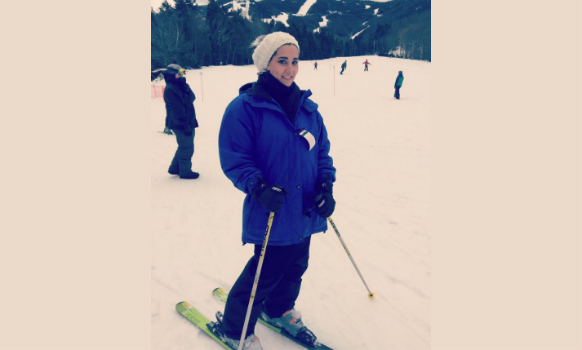How To Spot Emotionally Abusive Manipulative Leaders
As we approach the close of Mental Health Awareness Month, Jew in the City is ready to tackle an insidious, and often unspoken-of issue in religious communities: that of toxic leadership. In conversation with Rabbi Yanky Horowitz and Dr. Michael Salamon, Allison sparked a discussion about manipulative leaders and self-serving power dynamics. An abusive leader — in a uniquely extremely powerful position among abusers — has the ability to utterly ruin individual lives and entire communities while never laying a finger on anyone.
Rabbi Yanky Horowitz is the founder and Director of Project Y.E.S – which provides youth enrichment services to teens-at-risk. He is an educator and advocate for victims of child sexual abuse and the author of Let’s Stay Safe, a book to educate children about sexual safety. Dr Michael Salamon is recognized for his transformative work in raising awareness of the prevention and treatment of child sexual abuse in the Orthodox Jewish community and aiding victims to obtain the help and support they needed. He is the author of Abuse in the Jewish Community, and helped create a model of procedures to guide rabbis in responding to abuse allegations within synagogues. These two experts navigate the complexities of psychology and ripple effects of such dynamics, in a cohesive blend of medical, rabbinical, and experiential perspectives.
While no one has the statistics, the issue of toxic leadership might have a higher occurrence rate in religious communities due to reverence towards leaders, Allison suggests. While most leaders in the Jewish community are good, well-meaning people, those positions can provide cover for manipulative, charismatic people in search of power. Manipulative tactics are often implemented on both the institutional level as well as with specific individuals, who are targeted, to be humiliated, controlled, or both.
The primary mission of groups run by such leaders appear to be lofty and holy — and thus far more difficult to call out — but for cult-like leaders with lavish followings, there are often red flags and patterns.
While it may seem as if good deeds and sharing Torah inspiration are one side of an abusive leader and abusive and controlling tactics are another side, Dr. Salamon explains that the good deeds and inspiration are a decoy for the hurt the abuser plans to inflict. Abusers are essentially the same, despite the different ways in which abuse can manifest. Whether an abuser favors the sexual, physical or emotional, they want to control other people; they lack empathy, they have their own goals in mind, and target certain individuals. Salamon also states that abusers don’t just groom their immediate victims: they also groom the family and community of the individual. Especially where abusive leadership is concerned, this causes a phenomenon called “institutional betrayal,” in which the institution becomes the mouthpiece which protects the abuser.
There are many draws to such organizations, particularly if the façade of holiness is widespread and one wants to be perceived as a good person and led by assumed-good people. Others are, unfortunately, instinctively drawn to communities with toxic dynamics. People who are attracted to an authoritarian dynamic are often ones who feel a moral or lifestyle threat. They are likely to shut down their own independence in favor of leaders making decisions for them. Sometimes they choose an organization with a toxic leader, and make themselves vulnerable to an organization that has no morals. Ultimately, though, anyone can fall into this trap: be it by communal circumstances, a spiritual journey, peer pressure, and many other reasons.
What follows, psychologically, is pluralistic ignorance: while institutional betrayal describes how the abuser is protected by the community they form and manipulate around them, pluralistic ignorance is something that can occur in the minds of the flock itself, and thereby they systemically perpetuate the abuse. In such a dynamic, people within an organization might be able to see that something is wrong, but tell themselves that they know better than everyone else, and resolve to stay present while not engaging directly with the abusive situation. Dr. Salamon says very clearly: it doesn’t work. In reality, once a person becomes involved in the community, they become subject to the abuse and being controlled. They become blind to the patterns of abuse by making excuses for the leadership dynamic, and believing that they can be immune to the influence while remaining entrenched in it. The community will even continuously shame anyone who tries to express their painful experiences at the hands of this abuse: losing touch with their initial gut instincts, and protecting the reputation of someone who is ruining people’s lives.
Devotion should not be blind — in fact, this is referenced in the Torah itself. Rabbi Horowitz highlights a specific verse about leadership and the rabbinate: “Do not place a stumbling block in front of a blind person.” This feels like a message on human kindness and consideration — it is easy and even correct to take this message literally. Our sages extend the metaphor to giving people bad business advice — because said advice might benefit you rather than the person seeking insight. The same principle extends to greater tiers of leadership: a manipulative leader wishes to influence followers to their own ends, while touting their organization’s rules and philosophy as spiritual “sound business advice.”
Even when abusive leaders and organizations cite the Torah, critique of that behavior is found within that same Torah. These leaders will put pressure on followers to maintain a certain lifestyle, often shaming those who do not maintain their self-serving standards and anyone who is “other” to the organization. Rabbi Horowitz gently points out that God Himself doesn’t force outcomes on us. In other words, who we become through our actions and learning is up to us. One of the most valuable ways in which we grow in life is by learning from our mistakes: it is one thing to be insecure in our own decision making, for which we can and should be encouraged to seek emotional or spiritual guidance, but guidance only. Authoritarian dynamics are inherently flawed, and a manipulative and dictative leader ultimately breeds fear and lack of communication among the flock.
The role of a leader is to guide the people who come to them in the way that’s best for the follower, not the leader. Although we use the term “follower” to refer to someone who respects a leader and their teachings, the goal of a healthy leader is to promote independence and growth in the community. The intense devotion that toxic leaders demand is, in fact, a giveaway to their selfish desires and manipulative ways.
These experts’ advice regarding avoiding such leaders ultimately boils down to self-education on the red flags of toxic leadership so that you recognize them when you encounter them. Awareness is the first step. Parents and healthy leaders should help educate children about the dangers, and adults should continue self-education; trusting your own experiences to acknowledge toxicity in a relationship
But what happens when you can see a loved one who is in a relationship with an abuser, and want to help extract them from the grip of a manipulative leader? Rabbi Horowitz recommends doing so slowly and indirectly — don’t jump straight to the frontal approach, because that will immediately put the victim on the defensive. Instead, wait until the person is away from their abuser, and ask small questions — coaxing them into coming to conclusions on their own.
What other signs can we look for? Rabbi Horowitz uses the metaphor of “square cookies.” In encouraging people to choose schools for their children, he advises parents to look at the eldest grade in an institution and see if all of the kids look and act the same. If they do, then they are square cookies: their edges have been cut off to conform, instead of being allowed to grow into their truest selves.
He also suggests considering a leader’s reaction when you ask for advice and don’t end up taking it. Ultimately, the decision is yours – and a leader should not be affronted if you do not take their suggestion because it insults their authority. One of the hallmarks of Judaism is creating and encouraging respectful dissent. True leaders are happiest when people are healthily independent.
A good leader makes you kinder and gentler — if a leader makes you angry, or speaks in anger and vitriol, something is wrong. “There is more to life than just giving you mussar,” Dr. Salamon says, “[A rabbi] has to give you encouragement, strength and a sense of self so that you can make some good independent decisions.” Someone who obsesses over negativity — especially in things that they view as sinful, and publicly shames those who they view as sinful — is someone abhorrent in that attitude and in the mind of someone who acts and preaches in such a way. That is not holiness, Rabbi Horowitz insists, rather someone who believes that they are God. Only God can sit in judgment — and as we’ve already discussed, God does not force people into positions, and values our independence and self-expression.
The issue of institutional abuse is, ultimately, not exclusive to religion. However, this brand of manipulation and abuse — especially preaching through fear and shame — is one of the biggest turn-offs for religion across the board. One of Jew in the City’s primary goals is to express the beauty of the Orthodox Jewish lifestyle to the world — both to the secular world, and to ourselves. We owe it to the victims of charismatic abusers and ourselves to recognize these dangers and speak against them.
If you found this content meaningful and want to help further our mission through our Keter, Makom, and Tikun branches, please consider becoming a Change Maker today.








2 comments
Sort by
I posted a comment on this site about ten years ago. At that time I was emotionally broken by abuse I experienced by individuals and institutions in our community. I left the community and live in a place where there are no Jews and I finally found some peace. I am observant in every way but I cannot say I am part of the orthodox community. I support the work you are doing and I contribute monthly. I see there is progress with individuals who are survivors of the kind of abuse unique to the orthodox community. May you have strength to continue your good work.
Bryon Szojchet
Bryon- I’m so sorry for how the community failed you as a person and a fellow Jew. Abusers are very good at what they do. We combat this through education and being brave to stand up to them. Thank you for your support and I hope one day you can meet Jews in real life who can earn your trust back and welcome you to a community.